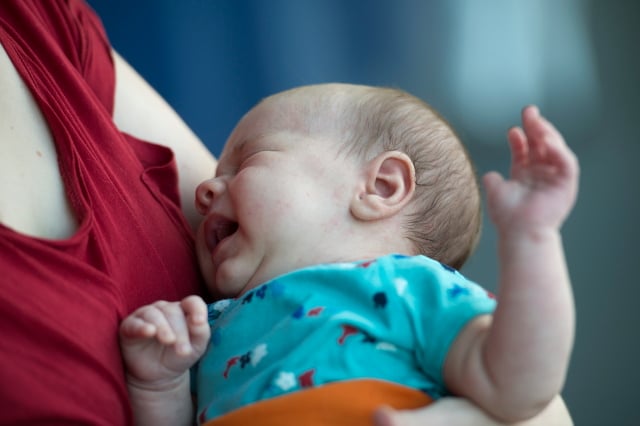But their work was criticized by colleagues in the medical field, with one calling the study methodology “appalling”.
A duo from Lund University's medicine faculty tested the traditional Chinese needle-piercing remedy in a trial involving nearly 150 babies between two and eight weeks old.
They reported their results in the journal Acupuncture in Medicine, published by the BMJ – formerly known as the British Medical Journal.
Compared to babies who did not undergo the needle treatment, infants who received acupuncture over two weeks exhibited “a significant relative reduction” in crying, the team found.
Such research can be controversial. Acupuncture is invasive, potentially painful, and its benefits are not universally accepted.
Organizations such as the British Medical Acupuncture Society says it is used to treat muscle and postoperative pain, as well as nausea.
But some think acupuncture's effects are that of a placebo, meaning people feel better because they believe it works. The National Institutes of Health, the main UN research agency, says there is “considerable controversy” around its value.
Colic affects as many as one in five families, and is diagnosed when a baby cries for more than three hours per day on more than three days per week.
Why it occurs is not well understood. Indigestion, trapped wind and intolerance to cows' milk have been identified as possible causes.
For the study, colicky babies were divided into three groups of 49. One received “minimal” acupuncture treatment, while another was given up to five 30-second needlings per session. The third group was not given any needle treatment.
“Significantly fewer infants who received acupuncture continued to cry/fuss excessively,” the researchers concluded.
This suggested “acupuncture may be an effective treatment option” for babies crying more than three hours a day.

File photo of an adult person receiving acupuncture. Photo: AP Photo/M. Spencer Green
Criticism of the study was harsh. David Colquhoun, a professor of pharmacology at University College London, described the researchers' analysis of data as “incompetent” and “appalling”.
The study “certainly doesn't show that it [acupuncture] works”, he told the Science Media Centre.
“What parent would think that sticking needles into their baby would stop it crying? The idea sounds bizarre. It is.”
Edzard Ernst from the University of Exeter said the study showed “almost the opposite of what the authors conclude”.
“We know that colicky babies respond even to minimal attention, and this trial confirms that a little additional TLC” – Tender Loving Care – “will generate an effect”.
A total of 388 acupuncture treatments were performed on the babies, the authors reported. On 200 occasions the infant did not cry at all after being pierced, 157 times they cried for up to a minute, and 31 times for more than that.
“The acupuncturists reported bleeding (a single drop of blood) on 15 occasions,” the authors said.
The treatment “may be considered ethically acceptable” if it managed to reduce excessive crying in the longer term, they added.
The report did not indicate what acupuncture points were used.
Article written by AFP's Mariètte Le Roux.



 Please whitelist us to continue reading.
Please whitelist us to continue reading.